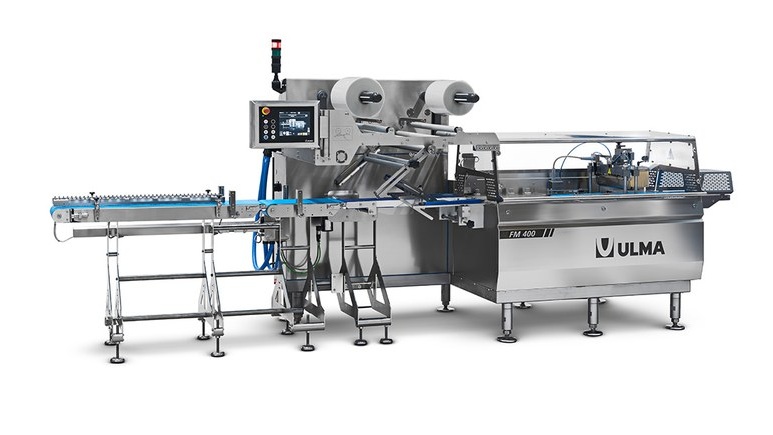Packaging
Trials will help industry to safely reduce packaging waste
Paul McMahon, Business Manager ? Machine Sales at ULMA Packaging UK, says: ?Growing concerns over plastic pollution and the impact of food packaging waste on the environment is helping to increase demand for sustainable packaging. While the current sustainability drive is welcome news for policy makers in the UK tackling the impact of plastics and ways to boost recycling - it will take time for manufacturers to find suitable alternatives.? Paul, who believes that trials with any new packaging will need to happen to ensure that the quality and protection of food is assured, explains: ?The good news is that innovative packaging machinery designed to reduce pack size and waste, in addition to being compatible with biodegradable and recyclable materials, is helping to make waste reduction a reality.? Paul, continues: ?Machinery designed to reduce film waste by up to 40 per cent such as ULMA?s TFS407R, alongside innovative materials like biopolymers and other solutions such as paper-based wrappers and boxes continue to be introduced to the market and we expect this trend to continue.? ULMA Packaging UK acknowledges that reducing food packaging waste is a top priority and is currently working closely with several industry partners to run trials using sustainable materials including cardboard, as well as compostable and recyclable films. Paul, concludes: ?We have recently invested in a new demonstration facility in the UK to facilitate packaging trials as it is important for us to help brands achieve their goals. By trialling new packaging machinery with sustainable materials, any concerns over whether an innovative new material will do the job it needs to do is alleviated. It truly is an exciting time to be working in the packaging sector and the amount of bespoke packaging solutions on offer to reduce waste is astounding.?
20 February, 2019
Paul McMahon, Business Manager Machine Sales at ULMA PACKAGING UK, says: Growing concerns over plastic pollution and the impact of food packaging waste on the environment is helping to increase demand for sustainable packaging. While the current sustainability drive is welcome news for policy makers in the UK tackling the impact of plastics and ways to boost recycling - it will take time for manufacturers to find suitable alternatives. Paul, who believes that trials with any new packaging will need to happen to ensure that the quality and protection of food is assured, explains: The good news is that innovative packaging machinery designed to reduce pack size and waste, in addition to being compatible with biodegradable and recyclable materials, is helping to make waste reduction a reality. Paul, continues: Machinery designed to reduce film waste by up to 40 per cent such as ULMAs TFS407R, alongside innovative materials like biopolymers and other solutions such as paper-based wrappers and boxes continue to be introduced to the market and we expect this trend to continue. ULMA Packaging UK acknowledges that reducing food packaging waste is a top priority and is currently working closely with several industry partners to run trials using sustainable materials including cardboard, as well as compostable and recyclable films. Paul, concludes: We have recently invested in a new demonstration facility in the UK to facilitate packaging trials as it is important for us to help brands achieve their goals. By trialling new packaging machinery with sustainable materials, any concerns over whether an innovative new material will do the job it needs to do is alleviated. It truly is an exciting time to be working in the packaging sector and the amount of bespoke packaging solutions on offer to reduce waste is astounding.











